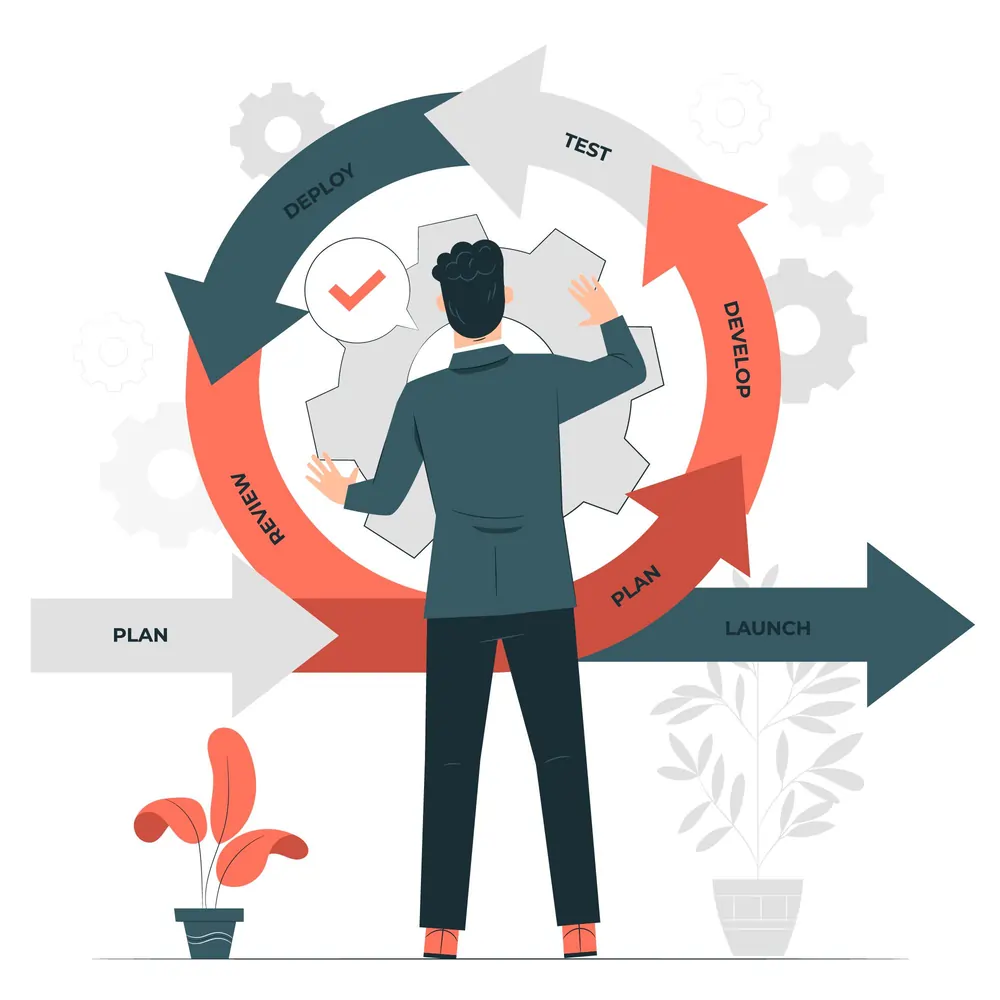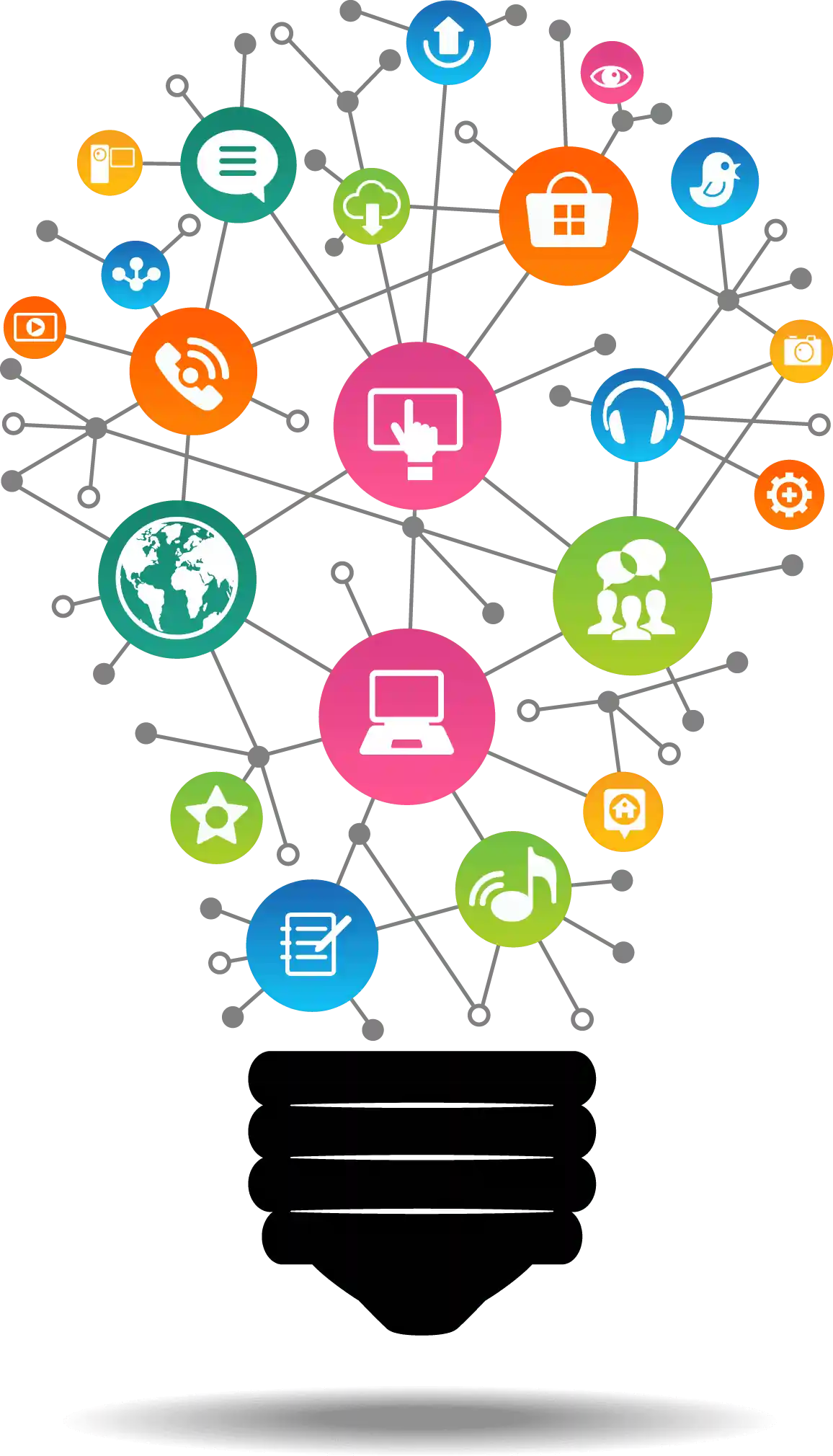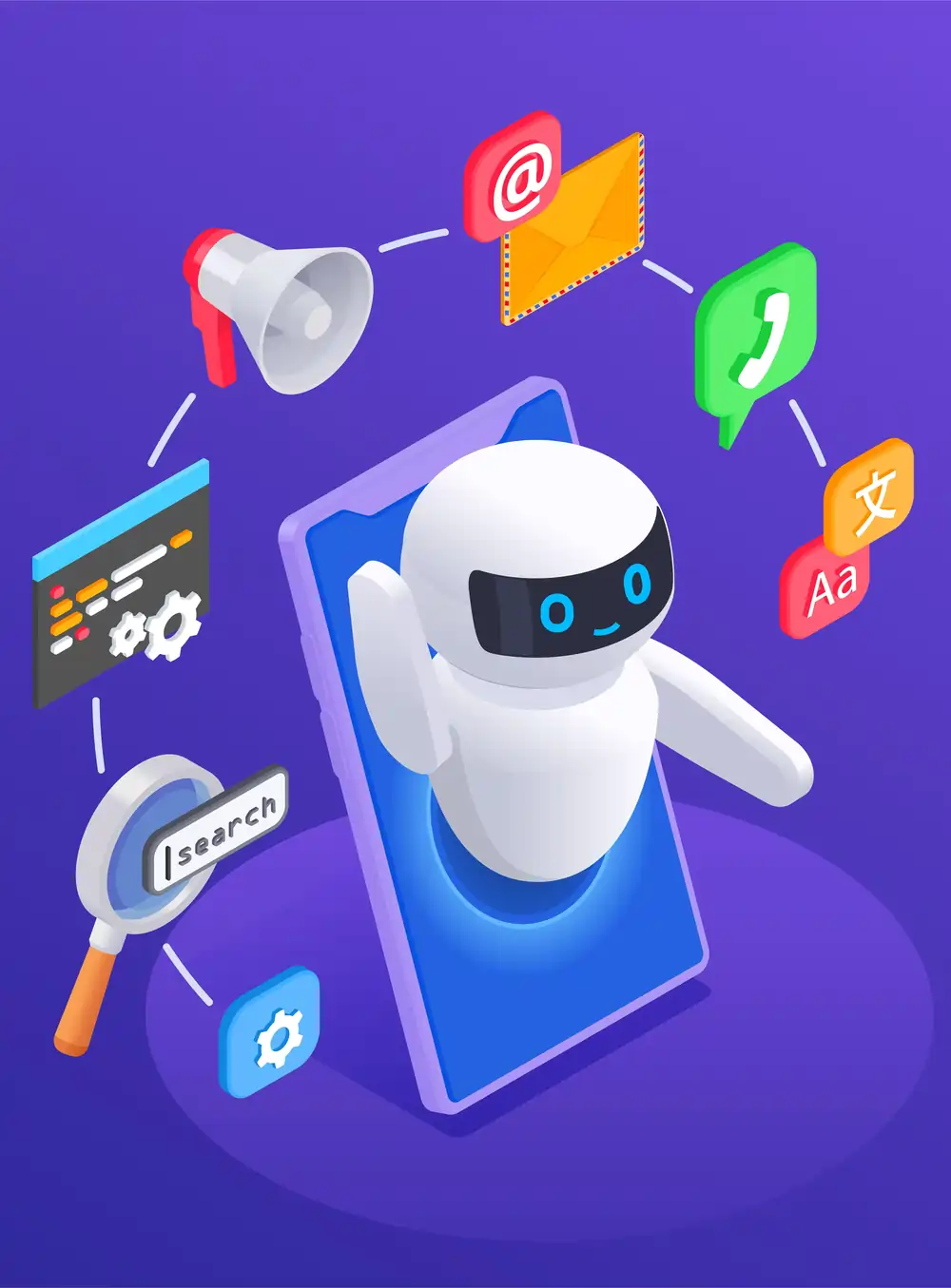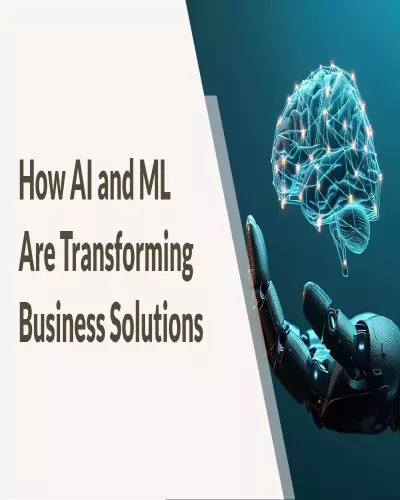AI, Trends 24 Jul 2024
How Future AI Trends Will Change Your Daily Life
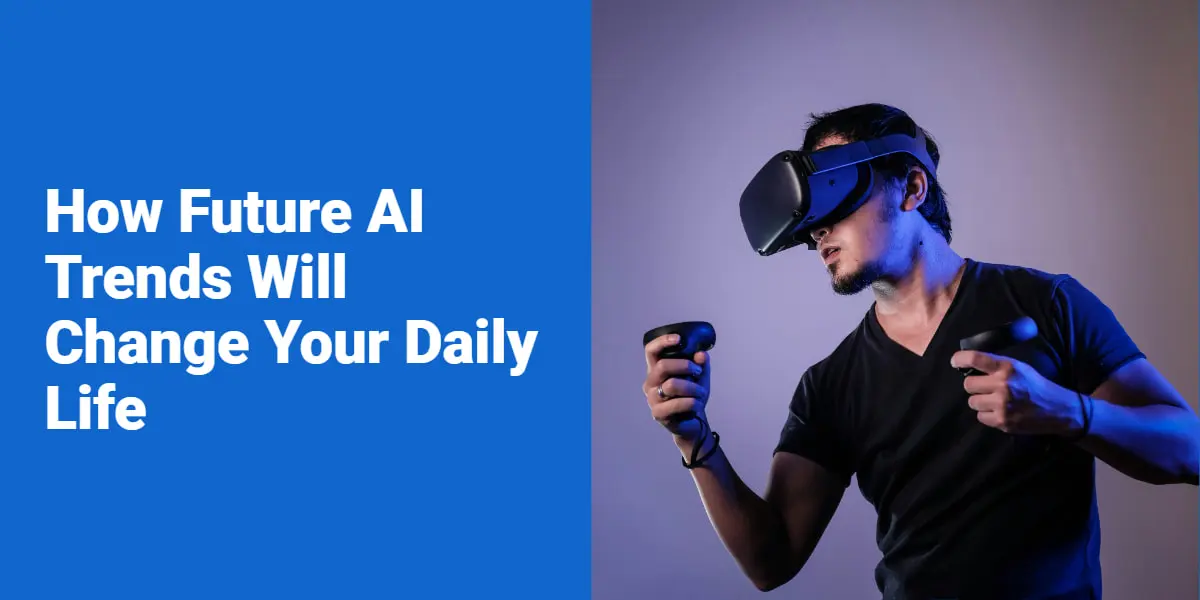
Artificial Intelligence (AI) is making big changes in our lives. It helps make things easier and more fun. Imagine your home automatically adjusting the temperature, turning on lights, or even making coffee for you. That’s just a small example of how AI will soon be part of everyday life. Let’s dive into some key AI trends and see how they will affect us.
1. Customized Experiences Just for You
Smart home automation means using technology to control your home’s systems and devices automatically or from afar. AI helps your home adjust to your needs, making life more comfortable and energy-efficient.
Example:Imagine waking up to a home where the temperature is just right, the lights gently brighten, and your coffee starts brewing—all without you doing a thing. Your home’s AI system knows your routine and makes your mornings better.
- Nest Learning Thermostat: Adjusts the temperature based on your habits.
- Philips Hue Smart Lights: Lets you control light colors and schedules from your phone.
- Amazon Echo: A speaker that lets you control smart devices with your voice.
- Ring Video Doorbell: Shows you who’s at the door and lets you talk to them from anywhere.
Devices and Products for Smart Home Automation :
2. Smarter Virtual Assistants
Virtual assistants use AI to help you manage tasks and get information. They understand your voice commands and can help with scheduling, reminders, and more. Explore how AI and ML services enhance virtual assistants.
Example:Your virtual assistant not only reminds you of your appointments but also suggests the best times for a vacation or meeting based on your schedule.
- Google Assistant: A voice helper on Google devices and smartphones.
- Amazon Alexa: Controls smart home devices and answers your questions.
- Apple Siri: Manages tasks and smart home controls through voice commands.
- Microsoft Cortana: Helps with productivity and integrates with Microsoft services.
Devices and Products for Smarter Virtual Assistants:
3. Better Healthcare
AI in healthcare means using technology to improve medical care. This includes wearable devices that monitor your health and apps that give you health tips based on your data.
Example:Wearable devices can track your heart rate and activity levels. If something seems off, like an irregular heartbeat, the device can alert you to seek medical advice early.
- Apple Watch Series 8: Tracks health metrics and alerts you to any irregularities.
- Fitbit Charge 5: Monitors fitness, heart rate, and sleep with personalized health insights.
- Withings ScanWatch: Combines heart rate monitoring with sleep tracking.
- Oura Ring: Provides detailed health data and recommendations based on your activity and sleep.
Devices and Products for Better Healthcare:
4. Smarter Transportation
AI in transportation involves using technology to make travel safer and more efficient. This includes self-driving cars and improved traffic management systems.
Example:Self-driving cars use AI to navigate roads, park, and adjust to traffic conditions, so you can relax or work while traveling.
- Tesla Autopilot: Offers semi-autonomous driving features.
- Waymo: Provides fully autonomous ride services.
- Cruise: Develops self-driving technology for city travel.
- Uber Advanced Technologies Group: Works on AI solutions for self-driving rides.
Devices and Products for Smarter Transportation:
5. Personalized Learning
AI in education helps create learning experiences tailored to each student’s needs. It adjusts lessons based on your progress and gives you personalized feedback.
Example:An AI-powered app adapts its content to match your learning pace. If you’re struggling with a topic, it provides extra practice and resources to help you improve.
- Khan Academy: Uses AI to offer tailored practice exercises and lesson recommendations.
- Duolingo: Adjusts language lessons based on your performance.
- Coursera: Recommends courses and learning paths based on your goals.
- Edmodo: Uses AI to support personalized learning and manage classrooms.
Devices and Products for Personalized Learning:
Let's create something great together.
Your vision and our expertise can make a big impact.
6. Easier Communication
AI makes communication simpler by providing real-time translation and smart chatbots. This helps you talk to people who speak different languages and improves customer service.
Example:AI translation apps can instantly translate your speech into another language, making it easy to communicate with people from around the world.
- Google Translate: Translates text and speech instantly.
- Microsoft Translator: Provides real-time translation for conversations.
- iTranslate: Offers voice and text translation in various languages.
- Skype Translator: Translates spoken conversations during video calls.
Devices and Products for Easier Communication:
7. Boosted Creativity
AI helps with creative tasks like designing, writing, and making videos. It can suggest ideas, designs, and streamline your creative process.
Example:AI design tools can recommend colors, fonts, and layouts for your projects, making it easier to create visually appealing designs.
- Adobe Creative Cloud: Features AI tools to assist with creative projects.
- Canva: Provides AI-driven design suggestions and templates.
- DALL·E: Creates images from text descriptions for creative inspiration.
- Runway ML: Offers AI tools for editing videos and images.
Devices and Products for Boosted Creativity:
8. Ethical and Social Considerations
As AI becomes more common, it’s important to ensure it’s used responsibly. This means being transparent about how AI works and avoiding biases that can affect people unfairly.
Example:Ethical AI practices involve making sure that algorithms are fair and transparent, especially in sensitive areas like hiring and law enforcement.
- IBM Watson: Focuses on creating ethical AI solutions.
- H2O.ai: Provides tools for fair and transparent data analysis.
- Ethics Guidelines for Trustworthy AI (EU): Offers guidelines for responsible AI use.
- AI Fairness 360 Toolkit: Helps detect and reduce bias in AI models.
Devices and Products for Ethical and Social Considerations:
Conclusion
AI is set to make a big impact on many parts of our lives, from smart homes and personal assistants to healthcare and education. By understanding these trends and examples, you can see how AI will improve convenience, safety, and creativity in everyday life.
FAQ
Frequently asked questions (FAQs) about JBcodeapp cover custom
websites, app development, design, AI, hiring, and digital marketing..
AI is transforming our daily lives by automating tasks, enhancing convenience, and providing personalized experiences. From smart home automation and virtual assistants to improved healthcare and transportation, AI is making life easier and more efficient.
Examples include the Nest Learning Thermostat for temperature control, Philips Hue Smart Lights for customizable lighting, Amazon Echo for voice control, and Ring Video Doorbell for remote door monitoring.
Virtual assistants like Google Assistant and Amazon Alexa use AI to understand voice commands, manage schedules, set reminders, and offer personalized suggestions based on user data.
AI in healthcare includes wearable devices that monitor health metrics and apps that provide health insights. Examples are the Apple Watch Series 8 and Fitbit Charge 5, which track fitness and alert users to potential health issues.
AI enhances everyday convenience by automating routine tasks, providing personalized experiences, and improving various aspects of daily life, from home automation to creative projects.

